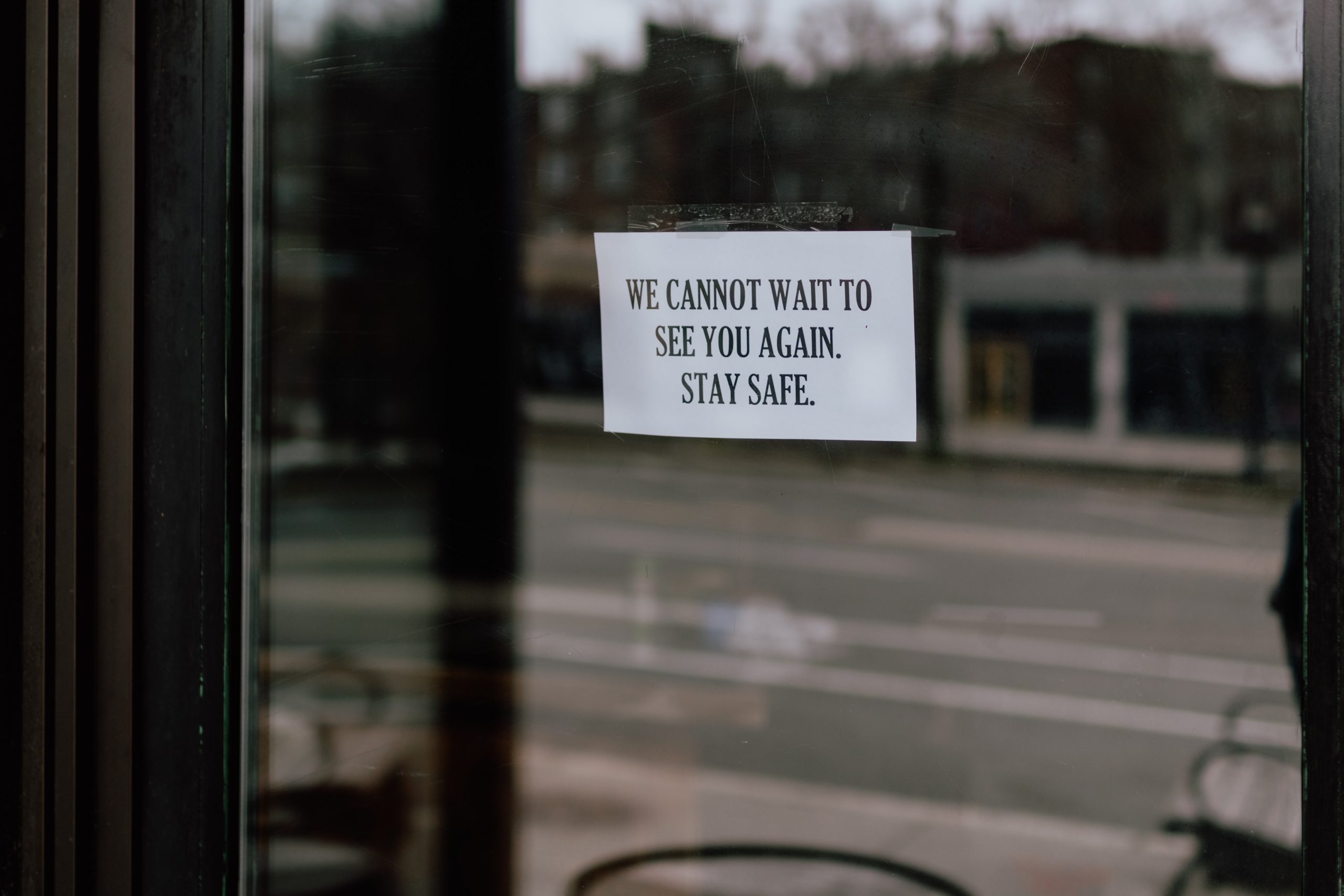Companies trying to prevent layoffs are turning to banks, accountants and nonprofits to help them apply for federal assistance during the coronavirus pandemic.
Kevin Richie anticipated a busy March for his Austin-based lighting rental company. After all, it was time for the city’s annual South by Southwest festival, and his company, Stage Spot, was booked to capacity.
“Then the hammer dropped,” Richie told The Texas Tribune. “For us, business essentially disappeared overnight.”
Companies like Facebook and Google had already begun canceling events as fears grew over the spread of the new coronavirus. By the time Austin Mayor Steve Adler canceled the entire 10-day event one month ago, Richie saw the writing on the wall.
“We rent lighting equipment to events, and as soon as events stopped happening, our business just disappeared overnight.”
Now Richie is one of thousands of small-business owners scrambling to secure loans backed by the federal government that will help him keep his business afloat and avoid laying off employees. The loans are part of a $2 trillion bill that passed Congress late last month. The objective of the bill was clear: shovel federal money out the door to compensate for an economic slowdown as public health officials pleaded with Americans to stay home.
Of that sum, Congress designated almost $350 billion to small businesses — companies with fewer than 500 employees. If operators use the money to hold on to their staffs, the loans will ultimately be forgiven.
Lawmakers wrote the bill with simplicity in mind, but even so, small-business owners across the state of Texas are tearing their hair out as they try to decipher the Small Business Administration’s guidelines and the 880-page bill.
“In general, it’s a great idea,” said Jim Clark, an Austin-based accountant who’s been fielding calls from clients. “It’s a great plan, but in practice, it’s going to be messy.
“Everybody’s trying to do their best, but it’s difficult,” he said.
U.S. Rep. Michael McCaul, an Austin-based Republican, told the Tribune in an interview that the aim was to minimize red tape. Rather than direct small-business owners to the federal government bureaucracy, members of Congress directed that most loans go through banks.
“We tried to make this as easy as possible, so instead of going through the bureaucracy of the SBA … all you have to do is go to your local banker, who you normally have a checking account with or whoever you do business with,” he said.
As a result, many banks have been in regular contact with clients to offer guidance as the banks digest and clarify guidance from the government.
“I actually feel very lucky because we have a banker,” Richie said. “That is not making money come out any faster. It just makes my frustration level go down a little bit.”
Besides his banker, Richie said in recent weeks he has leaned on his accountant and his attorney.
“We do have a bookkeeper and an accountant and an attorney, but two years ago we didn’t,” he said. “And had this happened two years ago, I don’t know what I’d be doing because there’s no way we would have had last year’s books in a way that the bank would be happy to see them.”
So many business owners may not have that kind of support handy. There are other resources for business owners, with the caveat that nearly all parties involved are currently overwhelmed.
Small Business Administration
The Small Business Administration has a website outlining the forms of support included in the Coronavirus Aid, Relief and Economic Security Act. The two most frequently used by small-business owners are the Paycheck Protection Program and the Economic Injury Disaster Loan Advance. The PPP process will go through banks while the EIDL program involves an online application. An applicant may not use money from both programs to pay the same expenses.
There is also an SBA hotline, 800-659-2955, which operates from 7 a.m. until 7 p.m. Central Time.
Congressional offices
Many offices within the Texas delegation have restructured in light of of the coronavirus outbreak in order to address both the public health crisis and the subsequent economic problems associated with large swaths of the population locking down.
McCaul and other members encourage small-business owners to call their representatives’ and U.S. Senate offices for guidance on steps forward.
“It is incumbent upon the members of Congress to educate their constituents on the legislation they passed,” McCaul said.
Staffers cannot offer business advice, but they can notify constituents of member-hosted tele-town halls and other educational programs for the public. Additionally, staffers can refer Texans to in-district nonprofits that can further advise business owners on the steps needed to apply for loans, or toward other means of information.
As for the lawmaking side of his job, McCaul said that SBAapplications are moving at a robust pace — so much so that he anticipates Congress will pass funding for another tranche of money for small-business owners in the coming weeks.
Small business advisory nonprofits
Across Texas, there are dozens of nonprofits that serve small-business owners.
These groups have staff on hand who can help small-business owners understand their options. Some offer other forms of educational outreach, including webinars.
The federal government has a directory for Texans to look up various small-business groups by location. Some of these organizations cater to the broad sector of small business, while other groups target their resources to women and minorities.
And there may be resources beyond the options in federal legislation. In San Antonio, a group called the LiftFund began making small-business loans worth up to $25,000 in mid-March, thanks to grants and donations from banks, municipalities and companies.
Patience amid frustration
It can be assumed that every entity involved in getting these loans and grants out to small-business owners will be inundated for days — if not weeks — to come. Experts urge patience, even amid frustration and existential livelihood fears.
Thousands of people are jamming phone lines. And because Americans are encouraged to stay at home, the option of walk-in visits is nonexistent.
“We have been slammed because of this crisis, because of what is going on,” said Richard Sifuentes, the director of the University of Texas at San Antonio’s Small Business Development Center.
Moreover, lending institutions must do their due diligence in making loans, which also takes time.
But Sifuentes is optimistic that once the rules are clarified and the system is in place, the process of getting money into the accounts of small-business owners will start moving more quickly.
“The message is really for the businesses to be persistent, patient and stick with it,” said Sifuentes. “And of course small-business owners are resilient.
“As time goes, it’ll get better,” he added.
“I have 30 days”
Janie Barrera is the president and chief executive officer of LiftFund, the San Antonio-based group aiming to help small-business owners.
“Systems are going to get clogged,” she concurred. “Not just ours … . You just have to be persistent and tenacious and keep at it.”
And nearly all of the market players interviewed for this story stressed the need for Americans to be as sympathetic as possible duringdire straits. These Texans urged patience not just with overwhelmed institutions, but also with each other as rent, mortgages and invoice payments come in the form of IOUs rather than checks.
As for Richie, the lighting rental company owner, he continues to sweat bullets over how he will keep his doors open and his staff employed.
“I know we will survive,” he said. “We just have to get through these few months.
“I am trusting that the government is going to get this right in the next month,” he added. “I have 30 days for them to get it right.”
Mitchell Ferman contributed to this report.
Disclosure: Steve Adler, a former Texas Tribune board chairman; Facebook; Google; the University of Texas at San Antonio; and South by Southwest have been financial supporters of the Tribune, a nonprofit, nonpartisan news organization that is funded in part by donations from members, foundations and corporate sponsors. Financial supporters play no role in the Tribune’s journalism. Find a complete list of them here.
“Texas’ small-business owners tap patience and experts to navigate coronavirus relief options” was first published at https://www.texastribune.org/2020/04/06/texas-small-business-owners-how-apply-sba-loans-coronavirus-aid/ by The Texas Tribune. The Texas Tribune is proud to celebrate 10 years of exceptional journalism for an exceptional state.








